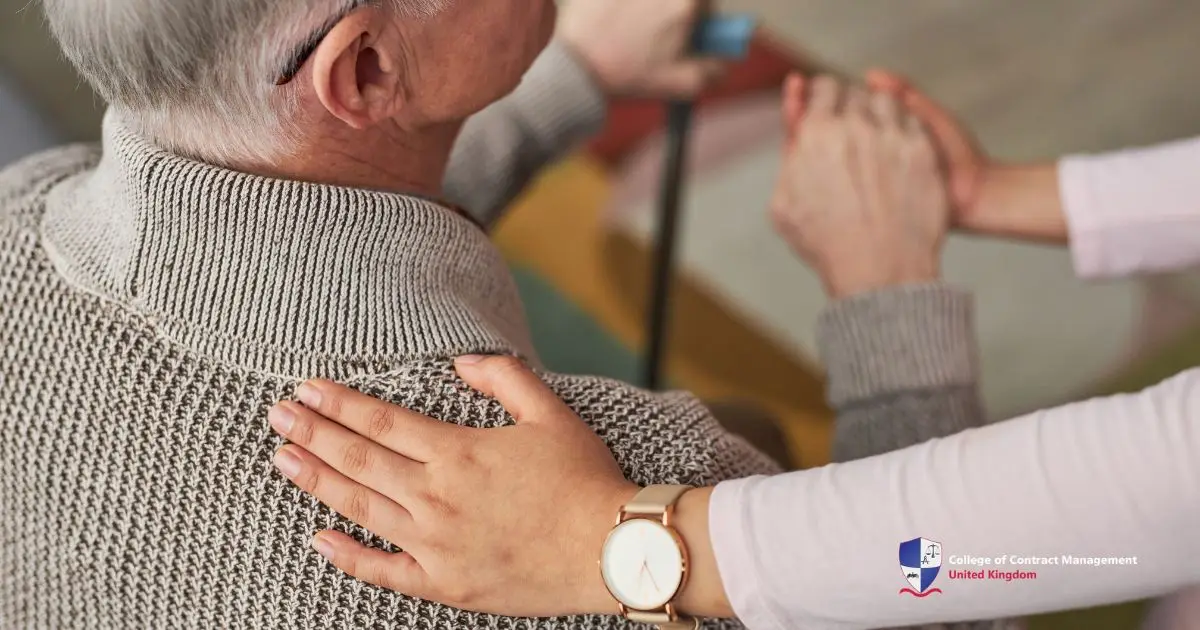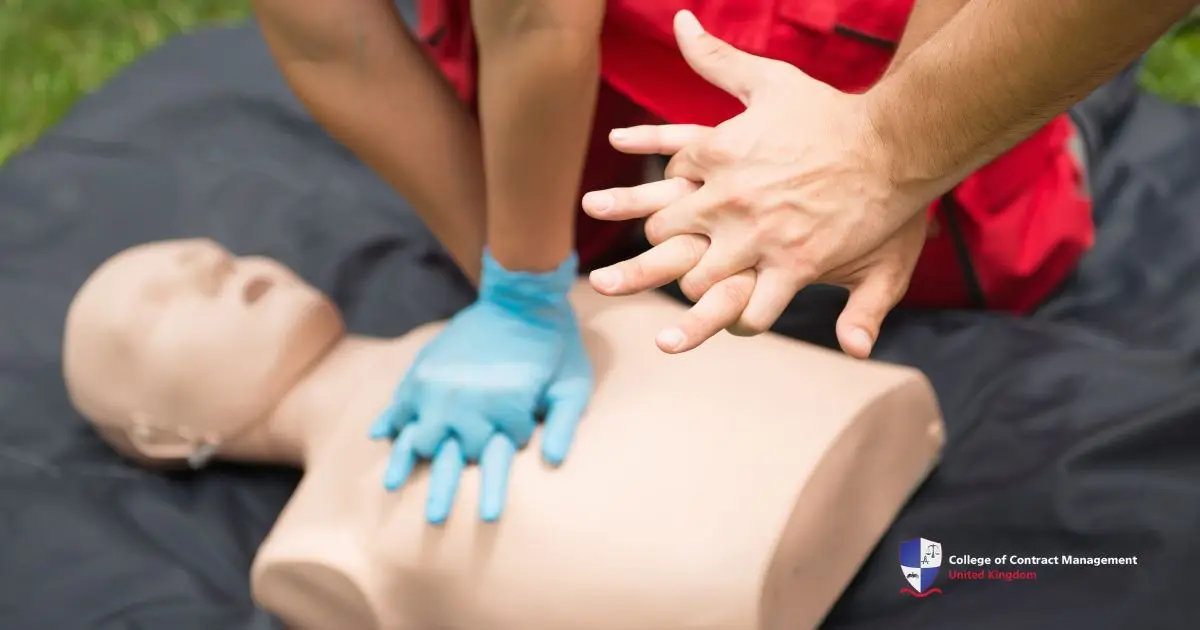Many patients who have suffered from sickness or injuries can take time to recover. They might still require personal care after coming home from the hospital. Care workers are the ones who provide care and help these patients do regular activities. They are trained professionals with the important skills for care to give support to those who need it. In learning these skills, you'll find out how to perform well in the role and also know how to deal with different people while remaining calm.
During the previous year, many people were leaving the care sector due to a lack of skills which eventually made the job more stressful. Not many people can work with vulnerable people without having compassion towards them. These responsibilities require a specific person with qualities to perform well in this job. This article will give you all the important information about becoming a professional care worker.
Who is a Care Worker?
A Care Worker or a Care Assistant is a professional who provides extra care and support to people in their care homes. With age, people may need to depend on others for their daily activities. However, they should not be completely dependent on others. Care workers play a part in providing support and pushing people to carry their lives independently and not become a burden on others.
In order to provide maximum support care workers need to have skills for care and a proper understanding of their daily tasks. Before assisting a client proper training is extremely important as it will help the carers to understand the client better.
Daily responsibilities of a Care Worker
As we know, care workers help people to live independently and comfortably. They assist those people who need it. This allows people to perform daily activities that they may otherwise struggle to perform without support. The following common tasks are the responsibilities that care workers offer their professional support to those who need it:
- Personal Care: Assisting the patients with basic cleanliness activities such as showering, grooming, or changing their dress.
- Helping them to move: Many patients suffer from fractures and cannot move easily. Care workers help them to move using certain tools such as wheelchairs or hand supports.
- Medications: Care workers also remind patients to take medications on time. Also, sometimes they have to convince them to take them due to their mood swings. They need to journal every time the patient takes the medicines.
- Emotional Support: One of the expected skills for care workers is to provide patients with emotional support by being good listeners to them. Often, they also motivate them and encourage them to not be disheartened with life.
- Observing Health changes: Care workers also keep an eye on the patient’s health condition and report any unusual changes to the doctors.
- Household Assistance: Activities like cooking, cleaning, and grocery shopping can be a task for patients. Care workers help in providing support with these activities.
These responsibilities clearly show that care workers need to be flexible and be able to work in any place. Either at homes, hospitals, or care houses, they should have the right qualities and skills for care and handling patients.
What are skills for Care Work?
For care work, it’s vital to have skills in empathy and professional care. We’ve understood the importance a care worker plays in helping people who require extra support. Now it’s time to focus on the skills. There is a specific set of skills for care workers that is worth knowing and can help you get a better understanding of the role. These skills are the abilities that can help the carer perform its care duties properly. Let us look at some of the essential skills in detail:
1. Understanding the key patient care strategies
In order to perform different tasks, care workers need to have knowledge of all the aspects that are required to make a patient’s life comfortable. For example, it is crucial to know how to move, position, or transfer people for safety when handling patients with limited movements. In many scenarios, if the patient has severe conditions, caregivers are required to have a mechanical and technical understanding of some equipment.
Skills for care in a home-based setting will be different where the carers are required to be physically fit to help patients move from one place to another. Another important strategy for patient care is to be able to coordinate and communicate with other carers who are looking after the patient. For instance, when the patient has taken the medicine, it is important to write it down in the journal to avoid repetitions.
2. Strong Communication Skills
Communication is the crux of skills for care workers. A good care worker should also be able to communicate well with the patient’s friends and family. The workers need to understand the said and the unsaid communication. Care workers daily work with a variety of patients with different needs. Some health conditions can also affect the patient’s ability to communicate. Staying calm and having compassion towards others is very important in such situations.
3. First-aid and Medical knowledge
Care workers are not doctors. Knowing the basics of medicine and first aid can be very helpful in some situations. This does not only help them to act confidently in tricky situations but it can also help in providing instant relief to the patients in cases of emergency. For example, if a patient is going through sudden bleeding or severe headache, providing them with basic remedies until professional help arrives can provide relief to the patient.
4. Empathy and Compassion
Empathy and compassion are important skills for care workers. It is the ability to feel and understand how the other person is feeling. Not many people can imagine themselves being in other people’s shoes. However, this can be useful in developing trust with them and bringing a positive outcome in their recovery. This particular skill can make it easier to work with the patients.
5. Personal Care Techniques
A large segment of caregiving involves supporting the patients with personal cleanliness such as taking the show, grooming, and other activities. It is very important to develop these skills for care workers to make sure they are performing these duties without making the patient uncomfortable. Understanding their movements and their body condition is also important to provide any injuries for both the carer and the patient.
6. Observation and Good Problem-Solving Skills
Care workers need to be extremely attentive and be able to observe the smallest change while providing care for clients with various needs. Small changes like not being able to sleep properly, or frequent headaches can be a sign of something wrong with them. They must be able to act quickly and report those changes to medical authorities to prevent serious problems.
Being a caregiver is a challenge as every day the client is different. You might face different scenarios every day where you might also have to deal with problems. You need to have a sharp presence of mind and be able to think quickly to solve those problems. Problem-solving is one of the skills for care workers that is important to ensure the patient is comfortable and all their needs are fulfilled on time.
7. Teamwork and Collaboration
We can't work alone in any profession. Care workers always interact with the other care professionals, the patient’s family, and friends apart from the patient. Good teamwork somewhat impacts the patient’s recovery as everyone is on the same page. Also sometimes care workers need to work with a larger team to execute the patient's care plan. This means that teamwork and collaboration are vital skills for care workers to ensure that the client’s requirements are met.
8. Organisational Skills
Being a care worker means balancing visit times for different clients throughout the day. Remembering important tasks and information for each client can be a task. This can require remembering medication times, care visits, and personal care routines. Also noting down unusual changes in the patient’s health condition and reporting it to the medical team require proper organisation.
9. Ability to work well under pressure
Another one of the important skills for care is handling pressure well. Managing multiple clients and making sure their needs are fulfilled can be difficult. It can be a huge pressure on care workers, but it is up to the carers to not panic in these situations. When you face these situations, it is always good to be calm and remember what you have learnt and use it to get the best outcomes.
10. Friendly nature and jolly mood
It is very well said that being happy cures all the sickness. Patients who are lonely or feel isolated have forgotten how to laugh. Being able to make them laugh for a moment can change their entire mood and help them to recover much faster. It can also have a huge impact on their mental health. Similarly, your friendly nature is one of the important skills for care that will help calm the client down during one of those bad days. After all, we all need someone by our side on bad days. Having a good sense of humour and friendly nature can help overcome many problems that the carers face during the role.
11. Respect towards Clients
Being respectful towards a client is one of the most important skills for care workers. Care workers should provide care to every patient with respect. Thinking that they cannot make choices for them is not acceptable and they should always respect their choices. Caregiving is all about making the client independent and just giving them a little push with their daily activities.
12. Professionalism and Ethical code of conduct
Care workers should not only have skills for care but also strictly follow professionalism and certain ethical principles. These include being discreet, and honest, and maintaining confidentiality. Having this attitude can build trust and respect between the patients and the caregivers. This also ensures that care and attention are provided in compliance with legal requirements.
Conclusion
Caregiving is a fast-paced job but at the same time, it gives a sense of satisfaction. It develops a person’s character and also prepares them for other real-life situations. This role requires patience and the ability to remain calm in all situations. These qualities can also be applied in other workplace settings and developing these.
If you are looking for an opportunity to give back to society, care work is the perfect choice. The courses and materials from them are an all-round development to be a professional care worker. It is more than a normal job and can change you into a people person. With the correct resources and guidance, this is your chance to give to society.
Gaining skills for Care Work
The care industry is growing every day and it is important to keep yourself informed and well ahead by learning continuously. Apart from the above skills for care workers the College of Contract Management offers many diploma courses in health and social care which can develop your professional skills and help you succeed in this role.





